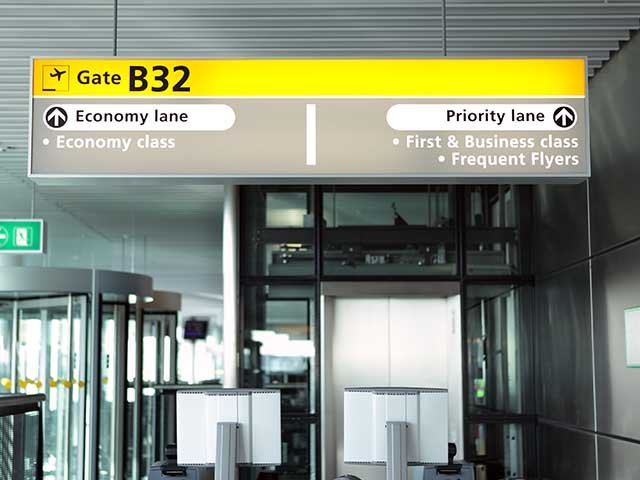Yes, I am. No, I am not. (A2)
Short answers (182)
Krátké odpovědi
Na Landigo se dnes naučíme tvořit krátké větičky (např. odpovědi: Ano, jsem.; Ne, nejsem.). Používáme je, když nechceme opakovat to, co už bylo řečeno.
Krátké odpovědi (short answers) – procvičování:
Porovnejte:
|
Are you hungry?
|
Yes, I am hungry.
|
|
Yes, I am (= I am hungry).
|
Vicky can't drive a motorbike, but Adam can. = Vicky neumí řídit motorku, ale Adam ano.
| ...but Adam can. |
| ...but Adam can drive a motorbike. |


Pokud už bylo něco řečeno a nechceme opakovat celou větu, často použijeme pouze podmět (Nick, he, we...) a pomocné nebo modální sloveso (is, won't, can't...):
|
We aren't thirsty, but Nick is thirsty.
|
|
We aren't thirsty, but Nick is.
|
|
I will be busy. He won't be busy.
|
|
I will be busy. He won't.
|
|
Can David surf? – No, he can't surf.
|
|
Can David surf? – No, he can't.
|
|
Could David come? – Yes, he could come.
|
|
Could David come? – Yes, he could.
|
I haven't been to New Zealand, but my parents have. = Na Novém Zélandu jsem nikdy nebyl, ale moji rodiče ano.
| ...but my parents have (been to New Zealand). |


Will Ellen fly to Los Angeles? – She might. = Poletí Ellen do Los Angeles? – Možná ano.
|
She might (fly to Los Angeles).
|


Should we wait for Ryan? – Of course, we should. = Měli bychom počkat na Ryana? – Samozřejmě, že ano.
|
Of course, we should (wait for Ryan).
|


V přítomném prostém čase použijeme DO/DOES nebo DON'T/DOESN'T:
|
Nick doesn't work on Monday, but I work on Monday.
|
|
Nick doesn't work on Monday, but I do.
|
|
I like it, but Mike doesn't like it.
|
|
I like it, but Mike doesn't.
|
Do you speak English well? – Yes, I do. = Mluvíš dobře anglicky? – Ano, mluvím.
|
Yes, I speak English well.
|
|
Yes, I speak I do.
|


We like American football, but Simon doesn't. = Máme rádi americký fotbal, ale Simon ne.
| ...but Simon doesn't (like American football). |


V minulém prostém čase použijeme DID nebo DIDN'T:
|
Nick didn't work yesterday, but I worked.
|
|
Nick didn't work yesterday, but I did.
|
|
Nick liked it. I didn't like it.
|
|
Nick liked it. I didn't.
|
My friends didn't enjoy rafting, but I did. = Moji přátelé si rafting neužili, ale já ano.
| ...but I enjoyed rafting. |
| ...but I did. |


V krátkých záporných větách použijeme sloveso v plném nebo zkráceném tvaru. Zkrácený tvar je běžnější:
|
I'm at home, he isn't.
|
|
I'm at home, he is not.
|
Is this our boarding gate? – No, it isn't. = Je to naše nástupní brána? – Ne, není.
| Zkrácený tvar: |
No, it isn't.
|
| Plný tvar: |
No, it is not.
|


V krátkých kladných větách používáme pouze sloveso v plném tvaru:
|
I'm not at home, he is.
|
|
Are you ready? – Yes, I am.
|
|
Are they coming? – Yes, they are.
|
Nikoliv: ...he's., ...I'm., ...they're.
Would you go to a Japanese restaurant? – Yes, we would. = Šli byste do japonské restaurace? – Ano, šli bychom.
|
Yes, we'd we would.
|


Krátké věty jsou často odpovědi s YES a NO. V takové odpovědi používáme osobní zájmeno (I, you, she...):
|
Does Jane know about it? – Yes, she does.
|
|
Is the movie long? – No, it isn't.
|
Nikoliv: Yes, Jane does., No, the movie isn't.
Was the concert good? – No, it wasn't. = Byl koncert dobrý? – Ne, nebyl.
|
No, the concert wasn't it wasn't.
|


Krátké odpovědi používáme, když souhlasíme nebo nesouhlasíme s nějakým tvrzením:
|
Johnny is so handsome. – Yes, he is.
|
Johnny je tak pohledný. – Ano, je. |
|
Paul doesn't like fish. – No, he doesn't.
|
Pavel nemá rád ryby. – To nemá. |
|
I didn't break it. – Yes, you did.
|
Já jsem to nerozbil. – Ale rozbil. |
|
I will stop smoking. – No, you won't.
|
Přestanu kouřit. – Ale nepřestaneš. |
Kelly hasn't taught French yet. – Yes, she has. = Kelly ještě francouzštinu neučila. – Ale ano, učila.
|
Yes, she has (taught French).
|
|
No, she hasn't (taught French).
|


Krátké odpovědi – nejdůležitější body a tip na závěr:
- Krátké odpovědi používáme, abychom nemuseli opakovat, co už bylo řečeno.
- Krátké odpovědi → podmět + pomocné/modální slovesa (He is.; He will.; John can.)
- Záporné věty → obvykle zkrácený tvar slovesa (No, he isn't.)
- Kladné věty → pouze nezkrácený tvar slovesa (Yes, he is.)
- Doporučujeme si procvičit krátké odpovědi v našich cvičeních.
